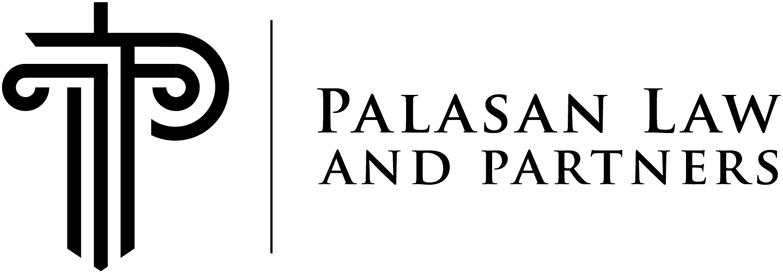The Supreme Court has disallowed the monthly amortization payments for private vehicles under the car benefit plan implemented by the Philippine Rice Research Institute (PhilRice) for not being among the benefits allowed under the law.
In a Decision penned by Associate Justice Japar B. Dimaampao, the Supreme Court En Banc denied the petition for certiorari under Rule 64, in relation to Rule 65, of the Rules of Court, filed by Sophia T. Borja, et al. (petitioners). The petition challenged the rulings of the Commission on Audit (COA) disallowing PhilRice’s payment of the amortization of private cars for being highly irregular.
In 2008, PhilRice, through its Board of Trustees (BOT), crafted a car plan program to attract and retain outstanding and deserving officials and employees who often opt for greener pastures outside the institute. The scheme was meant to benefit PhilRice’s priority officials and senior staff, including program/project leaders, division heads, and branch managers who were involved in the development and extension of the Rice Self-Sufficiency Project and other operations of PhilRice.
The car plan scheme operated as a rental plan under which qualified officials and employees procured vehicles of their choice through the financing scheme of the Philippine National Bank (PNB) for a period of three years, payable on a monthly installment basis.
The private, green-plated vehicles were then mortgaged to the PNB until full settlement of the obligation. The said vehicles were then rented out to PhilRice for use in the operations in its central station located in the Science City of Muñoz and other branches/stations in Batac (Ilocos Norte), San Mateo (Isabela), Los Baños (Laguna), Ligao (Albay), Murcia (Negros Occidental), RT Romualdez (Agusan del Norte), and Midsayap (North Cotabato). The rental payments were used to pay for the private vehicles.
In 2013, 26 Notices of Disallowances (NDs) in the aggregate amount of PHP 10,449,557.45 were issued by the Audit Team Leader and Supervising Auditor of the COA against PhilRice for “expenses incurred during the trips made using rented private vehicles” under PhilRice’s car plan scheme.
The disallowed expenses were found irregular on the ground that the car plan scheme was not approved by the President; not included in the exemptions under Section 12 of Republic Act No. (RA) 6758, or the Compensation and Position Classification Act of 1989; not governed by Section 6 of Presidential Decree No. 1597; and contravened the required austerity measures mandated by Administrative Order No. 103, series of 2004.
The COA Proper affirmed the disallowance of the car rental payments under the car plan scheme, prompting petitioners, who are approving/certifying officers as well as recipients of the disallowed amounts, to seek recourse to the Court.
In resolving the present petition, the Court affirmed the COA’s findings that the payments were irregular, but nevertheless excused petitioners’ civil liability to return the disallowed amounts.
The Court ruled that under Section 12 of RA 6758, all allowances and fringe benefits granted on top of the basic salary, with the exception of representation and transportation allowances, clothing and laundry allowances, subsistence allowance of marine officers and crew on board government vessels and hospital personnel, hazard pay, and allowances of foreign service personnel stationed abroad, are deemed integrated into the standardized salary rates.
Thus, the additional allowance pursuant to the car benefit plan of the PhilRice, in the guise of monthly amortization payments of petitioners’ private vehicles, is utterly devoid of legal basis, held the Court.
The Court also noted that petitioners have impliedly conceded on the irregularity of the subject benefits, stating in their petition that the car rental plan had been abandoned prior to the issuance of the NDs, upon the recommendation of the state auditors stationed in PhilRice.
As to petitioners’ liability, the Court held that under the guidelines laid down in the 2020 case Madera v. COA (Madera Rules of Return), approving and certifying officers who acted in good faith, and with the diligence of a good father of the family are not civilly liable to return the disallowed amounts.
Rule 2(c) of the Madera Rules of Return further provides that recipients are liable to return the disallowed amounts received by them, unless they are able to show that the amounts received were genuinely given in consideration of services rendered.
Recipients may also be excused under Rule 2(d) of the Madera Rules of Return based on undue prejudice, social justice considerations, and other bona fide exceptions as may be determined on a case-to-base basis.
Applying the rules to petitioners, who are approving/certifying officers as well as recipients, the Court found that petitioners showed that they acted in good faith in authorizing the payment for the amortizations, “propelled by a valid and genuine cause—the prevention of ‘brain drain’ within [PhilRice] through a more cost-effective approach.” Thus, petitioners, in their capacity as approving/certifying officers, are excused from liability.
As to their capacity as recipients, the Court held that petitioners, together with the other car owners, shouldered a considerable sum of money, which would have been PhilRice’s obligation had it opted to procure its own vehicles for the official travels of its officials and employees. “PhilRice had conveniently shifted the burden of acquiring, using, and maintaining vehicles to the plan’s beneficiaries, and the only sensible way to compensate them was through rental payments,” the Court ruled.
“While the arrangement resembled an additional allowance in favor of the beneficiaries or owners of the vehicles which, as aptly found by the COA, had no proper basis in law, still, to deny them of compensation for the lease of their vehicles would be tantamount to injustice, which cannot be countenanced by this Court. Inevitably, it would be clearly iniquitous to now direct the vehicle owners, as recipients of the disallowed rental payments, to return the amounts they had received for the lease of their properties,” stressed the Court.
The Court added that the vehicle rental plan was framed by the PhilRice BOT pursuant to its powers and functions under Executive Order No. 1061, and that petitioners and the other officials who took part in the car benefit plan were simply doing their respective jobs at the time, i.e., researching and developing technologies geared towards rice sufficiency for all Filipinos, when they were encouraged by the BOT to participate in the car rental plan.
“Accordingly, this highly exceptional scenario justifies the application of Rule 2(d) of Madera and thus, completely excuses [petitioners] and the other car owners from their civil liability to return what they had received,” concluded the Court. (Courtesy of the Supreme Court Public Information Office)
FULL TEXT of G.R. No. 252092, Sophia T. Borja, et al. v. Commission on Audit (March 14, 2023) at: https://sc.judiciary.gov.ph/252092-sophia-t-borja-ma-ethel-p-gibe-mary-grace-dg-corpuz-joy-t-agudia-aurea-c-cosio-wilfredo-b-collado-myrna-d-malabayabas-evelyn-f-javier-

